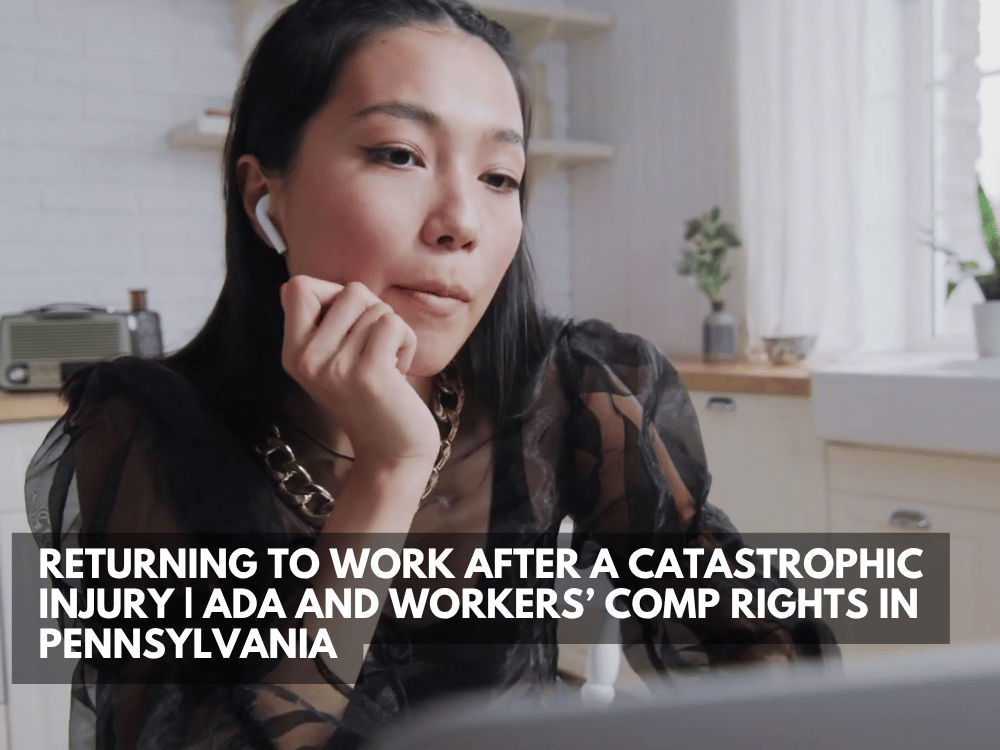Returning to Work After a Catastrophic Injury | ADA and Workers’ Comp Rights in Pennsylvania

A catastrophic injury can disrupt not just your health, but your career. For many people, returning to work after such an injury is both a personal milestone and a financial necessity. However, you may face physical limitations, workplace barriers, and uncertainty about your legal rights. Understanding the protections offered under the Americans with Disabilities Act (ADA) and Pennsylvania’s workers’ compensation laws can help you make a safe and fair transition back to work.
The Role of the ADA
The ADA is a federal law that prohibits discrimination against employees with disabilities, including those recovering from catastrophic injuries. It requires employers to provide reasonable accommodations so that you can perform the essential functions of your job. These accommodations might include:
-
Modified work schedules or reduced hours
-
Assistive technology or adaptive equipment
-
Physical changes to the workplace for accessibility
-
Job restructuring to remove non-essential duties you can’t perform
To qualify, you must be able to perform your job’s essential duties with or without these accommodations, and your employer must have at least 15 employees.
How Workers’ Compensation Fits In
If your catastrophic injury was work-related, Pennsylvania’s workers’ compensation laws may offer additional protections and benefits. These include:
-
Wage loss benefits if you can only return part-time or to a lower-paying position
-
Coverage for vocational rehabilitation services
-
Ongoing medical care for your work-related injury
-
Protections against being fired in retaliation for filing a claim
Coordinating ADA Rights and Workers’ Comp Benefits
These two systems often work together. For example, you may return to work in a light-duty role under workers’ comp while also receiving ADA accommodations. Your attorney can help ensure your employer complies with both sets of obligations without cutting off your benefits prematurely.
Challenges You May Face
Employers and insurers sometimes resist making accommodations or push injured workers back to full duty before they’re ready. Common issues include:
-
Disputes over what counts as a “reasonable” accommodation
-
Pressure to return to your old schedule despite medical restrictions
-
Job elimination or reassignment without your consent
-
Reduction or denial of workers’ comp benefits
Protecting Your Rights
To protect yourself, keep detailed records of all communications with your employer and insurer, follow your doctor’s restrictions, and get legal advice early in the process. An attorney familiar with catastrophic injury claims can help you navigate both ADA and workers’ comp laws to ensure you’re treated fairly.
Bottom Line
Returning to work after a catastrophic injury is a major step, but you don’t have to do it alone. With the right legal protections, you can secure necessary accommodations, preserve your benefits, and rebuild your career on your terms.
If you or a loved one is preparing to return to work after a serious injury in Pennsylvania, the Pisanchyn Law Firm can help you understand and assert your rights. Contact us today for a free consultation.
